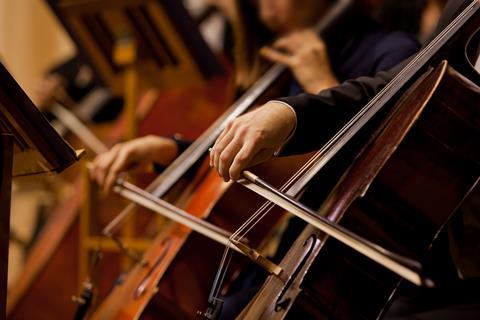The Manchester-based research will establish the difference live and recorded performance have on our non-conscious responses

Read more news articles here
In a new research initiative taking place on 17 and 18 September, teams from the Royal Northern College of Music, Manchester University and the University of Salford, led by Dr. Michelle Phillips will form to create MANCS (Music, Audiences, Neuroscience, Cognition and Society). The cross-institutional research team will work with Manchester Camerata to examine whether the differences between live and recorded music that people say they experience are evident in their neurological and biological responses.
Over the two days, 22 members of the public will listen to musicians from Manchester Camerata performing extracts of its concert repertoire. Each participant will be wearing Electroencephalogram (EEG) and Galvanic Skin Response (GSR) specialist equipment which will record brain activity and measure changes in sweat gland activity on the skin as an indication of physiological or psychological arousal.
Read: Covid-19 and young musicians: What you make of it
Read: The concert café that Covid could not close
Read more news articles here
‘We know that live music is a special experience due to factors which are difficult to replicate in a livestream or recording,’ Dr. Phillips explains. ‘What we don’t know, and what we hope to find out in this study, is whether our non-conscious responses (neurological and physiological) show that we find live music to be a different experience to live-streamed or recorded music performance.
’If this is the case, our results will be useful for anyone involved in live music – performers, venues, educators, policymakers – as the study will provide evidence for the demand for live music (which cannot be met by non-live means such as televised or streamed performance), and the need for this industry to continue to make a full recovery following the pandemic, and to be supported to do so.’
During the pandemic, performers took to the internet to live-stream their concerts in a shift that has altered the way that many audiences now access live forms of music. Until now, the result on audience members have only been recorded through audiences self-reporting their experiences. This research will be the first in the world to provide neurological and physiological data.
‘Manchester Camerata prides itself on being relentlessly pioneering and has a long history of collaborative research,’ Max Thomas, creative producer at Manchester Camerata said. ‘This project is essential to us and our industry and has the potential to help shape the future of both digital and live programming. After taking part in livestreams during Covid which reached over a million people and continuing with our digital UNTOLD film series after restrictions ended, to find out exactly what the impact of us playing live in a room to our audience versus a recording is incredible.’
Once collected, the research will be analysed by MANCS and released in the coming months.











































No comments yet